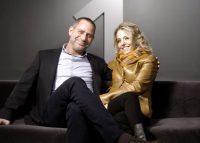On the eve of Barbara Corcoran’s sale of her eponymous brokerage in 2001, a former deputy nearly scuttled the deal by demanding $1 million — or else.
Rather than let the $66 million deal fall apart, Corcoran pulled out her checkbook. “At the eleventh hour, one of the most important people in my business held me up for $1 million,” Corcoran disclosed for the first time on the Dec. 4 episode of “Shark Tank.” “She said, ‘You’re going to pay me $1 million or I’m going to your rival.’ Now what do you think happened? I gave her the $1 million immediately.”
No, Corcoran didn’t name the offender. Industry sources, of course, have suspicions. Corcoran said the person left the firm after a couple of years and they lost touch.
“You never see the train coming in a situation like that,” she told The Real Deal in a recent phone interview. “This person was a hunter by nature. When she saw the opportunity, she went for the kill.”
Corcoran said she had never spoken publicly about the encounter. But when a contestant on “Shark Tank” described seizing control of a startup, she said it touched a nerve. “I was enraged,” she said.
Read more


Corcoran famously launched her firm in 1973 with $1,000 from an ex-boyfriend who told her she would never succeed. By 2001, it was Manhattan’s second-largest independent brokerage with 700 agents.
Days before the Sept. 11 terrorist attacks, Corcoran struck a deal to sell the firm to NRT, now part of Realogy. “I wanted to grow aggressively,” Corcoran told the Wall Street Journal at the time. “I saw more opportunity than my pocketbook could afford.”
In fact, it was a period of consolidation in the brokerage world that is repeating itself today, with firms like Berkshire Hathaway and Compass snapping up independent shops.
Back then, Corcoran and then-president Pam Liebman negotiated with NRT for months. Liebman, along with Corcoran’s business partner Esther Kaplan and Melinda Magnett, who headed the firm’s Brooklyn operation, were minority partners in the brokerage.
Improbably, the parties struck a deal on Sept. 7, 2001.
Corcoran recalled recently that negotiations dragged late on Friday night, and by 8:30 p.m. her team wanted to break for the weekend. “I said, ‘No one is leaving until the contract is signed,’” she said. The deal got done around 11:30 p.m.
On Tuesday morning, the attack on the World Trade Center changed the course of history.
Corcoran’s contract — with a force majeure clause — was anything but secure, she said, and in the ensuing days her calls to NRT went unreturned. Reading the writing on the wall, she snapped into action. Corcoran said she bought a silver toy gun and marched into NRT’s office.
“I gave the best one-minute sales pitch of my life,” she said. The pitch touched on Corcoran’s recently-refurbished offices and an army of agents who hadn’t yet hit peak productivity. As a finale, Corcoran said she whipped out the gun and threw it on a table, where it spun around. Corcoran said she compared the brokerage to a “new gun that’s ready to be fired and the bullets won’t ever run out.”
It worked.
Corcoran announced the deal to agents on Sept. 21, 2001, at the Pierre hotel. After it closed, she stayed on as chairwoman, a role she held until 2005, while Liebman took over as CEO.
Liebman, who joined the brokerage in 1984 at age 23, was already running the firm and had negotiated terms of the sale to NRT, finalizing some of the details while riding a Ferris wheel with her young daughter. “Barbara would always say, ‘I want the last page of my book to say, I never even read a piece of paper,’” Liebman told The Real Deal in 2016. “She didn’t want to get involved in the details.”
Under NRT — and now Realogy — Corcoran continued to grow. In 2002, its parent company purchased new development marketing firm the Sunshine Group from Louise Sunshine. (Today, it operates as Corcoran Sunshine Marketing Group.) Then in 2004, Corcoran acquired rental firm Citi Habitats from founder Andrew Heiberger. The two brands operated independently until January of this year. The merger left Corcoran with 2,420 agents and $7 billion in annual sales.
More recently, Realogy said in 2018 it would expand the Corcoran brand by selling franchises in second-home cities around the world.
Barbara Corcoran admitted that when confronted by her deputy all those years ago, part of her wanted to say, “Blank you! Take a walk.” But she believed satisfying her ego would also be the wrong decision.
“I did not regret it,” she said, and within a few years the individual left the company and, she said she believes, real estate. “So they weren’t so important after all. The company went on just fine.”
